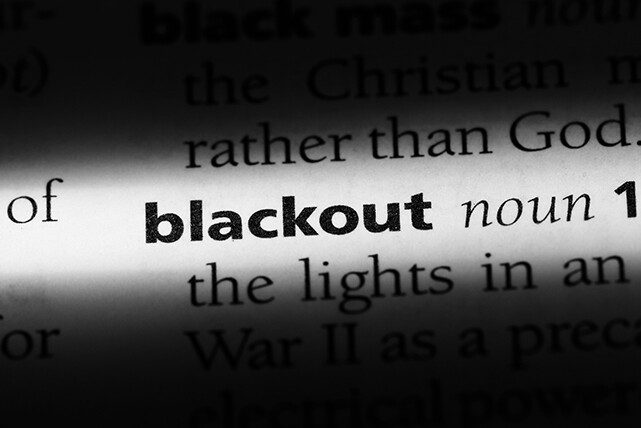AC Coupled for Blackout Protection? No thanks

Do you know the difference between AC and DC Coupled connections? Is it relevant to most thinking of investing in Energy Storage? What does an AC battery do compared with a DC version? Which is best for back up energy storage? These are just some of the questions people regularly ask us.
A little while ago, we detailed the pros and cons of AC vs DC Coupled and the difference between them. Visit our DC Coupled page here or our AC Coupled page here. However, if you’re not interested in the ‘techy’ side and just want to understand why it matters, then read on.
The main driver for DC over AC coupled is efficiency. At up to 99% efficiency for DC over an estimated maximum 90% for AC Coupled, it’s the obvious choice. That coupled with a lower cost and the flexibility you have with regard to expandable modules. But that’s not all. The differences when dealing with back-up power supply are what the make DC coupled batteries the real winners.
Back up power can also be a major decider in the energy storage arena. A must for anyone living in an area with an unstable power supply. Certain Countries, such as South Africa, have a notoriously unstable grid and their power companies rely on regular ‘load shedding’ to keep the power supply.
Luckily, not everyone has to deal with that level of unstable power supply. Many countries have outdated grids that were not designed to deal with the demands of modern-day technology and appliances. Take that into account alongside ‘mother nature’ and weather phenomenon and it becomes a point to consider regardless of location.
Recently, there were severe storms in the Dandenong Ranges area of Victoria, Australia. This caused chaos for many homes. Power was down for 3 weeks during a particularly powerful storm. Some families were lucky enough to have battery back-up supply and made good use of it. Utilising the ability to power their homes during the power outage and often helping their neighbours out too. The surprise battery that let its owners down was a Tesla Powerwall, and not for the reason you’d expect
Read the full article here. https://amp-abc-net-au.cdn.ampproject.org/c/s/amp.abc.net.au/article/100264988
If you’ve read the article, you’ll notice that the family with the Tesla Powerwall learned that they had made errors. Overloaded their demand, using too much power when their Solar wasn’t generating. Energy management in key times like an outage, is important, but in everyday circumstances it shouldn’t be the only factor.
Because of this overuse, their battery depleted very quickly. Sadly, with an AC battery, once completely flat, it will, in the case of the Tesla Powerwall, drop into ‘sleep’ mode. Once in this mode, until mains power resumes, your battery cannot function. A surprising problem in a battery promoted as a backup battery solution.
This is where such a small thing as AC Coupled vs DC Coupled comes into play.
With a DC coupled battery such as the Soltaro AIO2, there are no such issues. As the system is a true ‘complete system’ there is no communication with the PV inverter. The AIO2 contains a feature called ‘black start’ functionality. This allows the inverter to restart and recharge as soon as the PV starts generating again. Even if the batteries are fully depleted. Your battery will continue to charge and discharge as normal throughout a blackout scenario. But please check as not all DC Coupled Batteries have this option. As we always say…do your research!
Simply put, AC Systems aren’t designed to cope with back up. They’re more expensive to install as they need to be connected to a PV inverter and they aren’t as efficient. They can function as a short term back up, but not a true solution. If back up power is a concern, you’d best avoid AC coupled systems. Go with a DC coupled system like the Soltaro AIO2 which has back up support designed so well, it can fully support off grid living. Not something claimed or backed up by every manufacturer.
Such a small point of difference can become a colossal one when your home relies on power to keep your freezer working or lights on. Luckily most homes don’t have power outages that last weeks. But, if you’re going to invest in a system, we suspect most people want to know how to maximise their energy storage system properly. Key points such as backup suddenly become a very interesting topic.
Here at Soltaro, we’ve designed our system from the ground up. We understand why such small details are important and how the latest model, the AIO2 is designed with your family in mind. We listen, learn and advise. That’s why we’re energy experts and not just about fancy advertising and inflated price tags.
On grid or living off grid, the decision is yours. Either way we’ve got a solution to help you maximise your excess solar and power your home.
Get in touch
If you'd like to find out more about the AIO2 or any of our other products please complete your contact details using the steps below and we'd be happy to answer questions you have.
Aftercare & Support
Don't forget to register your new Soltaro purchase to validate and extend your warranty.
Register ProductsClich here to raise a support ticket and in most cases we can fix the problem without the need to visit your home.
Report a Technical IssueAll of our documentation including terms & conditions, warranty and techncal mannuals can be found here.
Documentation
